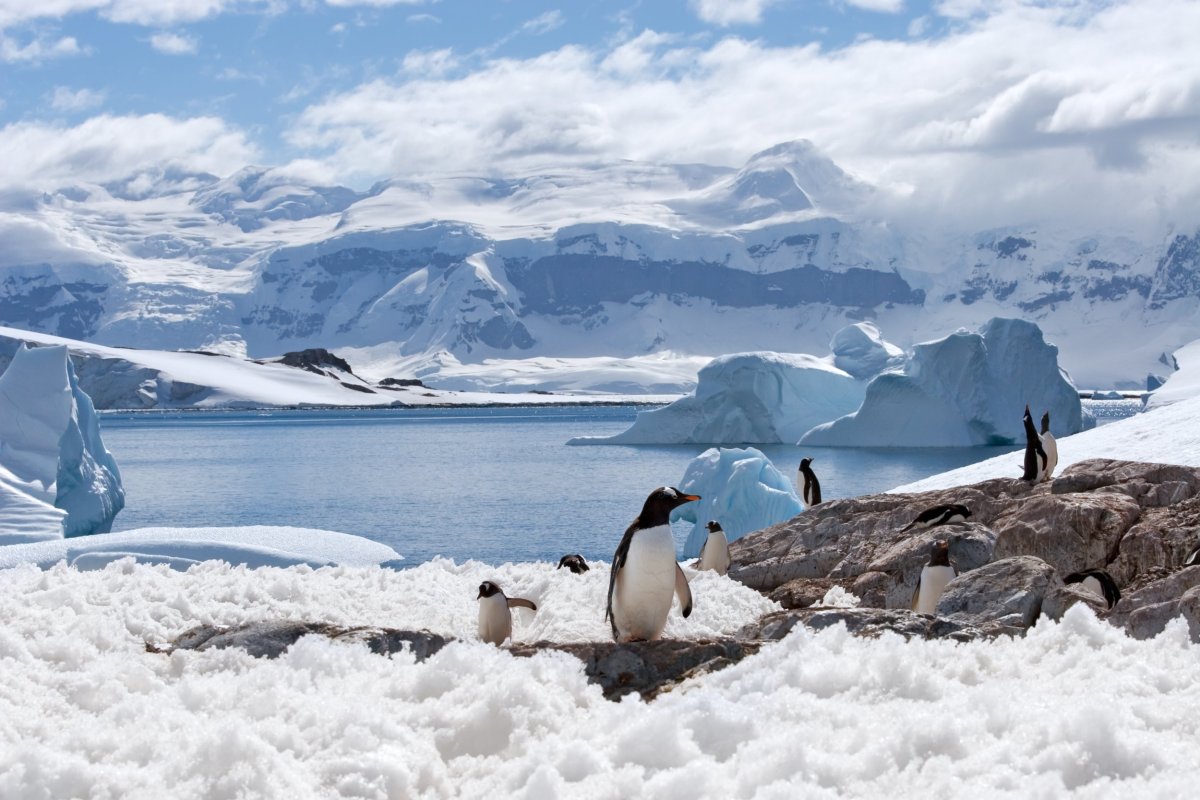Global sea levels could rise by up to four meters, or about 13 feet, if part of the world's largest ice sheet were to melt, scientists have warned.
In the past, researchers have largely focused their efforts on studying the West Antarctic Ice Sheet, a part of the continent that has lost 3 trillion tons of ice in the past 25 years. But for a study published in the journal Nature, scientists turned their attention to the East Antarctic Ice Sheet, the largest ice sheet on Earth, which is believed to be relatively stable when compared with the West Antarctic Ice Sheet.
For the first time, researchers at Imperial College London, provided geological evidence to show how a small part of the East Antarctic Ice Sheet, called the Wilkes Subglacial Basin, melted in the warm, late Pleistocene period, including periods of 120,000 and 400,000 years ago. The team analyzed layers of sediment from the Southern Ocean to conduct their research.
It builds on previous studies that showed sea levels were between 6 to 9 meters (about 20 to 30 feet) and 6 to 13 meters (about 20 to 43 feet) higher than they are now during those periods, David Wilson of Imperial College London, who led the study, told Newsweek.

"What our study demonstrates is that when regional temperatures were warmer than pre-industrial conditions by around two degrees, and were sustained for a few millennia, this part of the East Antarctic Ice Sheet has lost ice," he said.
"Previously scientists have given most attention to the Greenland and West Antarctic Ice Sheet as a potential contributor to future sea level rise over this century and in future centuries and millennia, whereas the implication here is that certain parts of the East Antarctic Ice Sheet must be considered too."
Scientists found a surprising pattern: the East Antarctic Ice Sheet appears to be more fragile than previously thought during the warm periods of the Pleistocene era.
In the past decade, our understanding of the East Antarctic Ice Sheet has come leaps and bounds. Geologists and glaciologists would have previously been shocked to find that the sheet had retreated at all at some stage in the last 14 million years, said Wilson. But new research has painted a picture of how vulnerable the low-lying areas of the East Antarctic Ice Sheet are to climbing temperatures.
Read more: Antarctica is getting taller: Frozen continent will rise when the ice melts
Wilson acknowledged the study's methods weren't exhaustive in answering how much of this region contributed to global sea levels in a quantitative way. "Fortunately, there are other strands of evidence to help with this, such as data from coral reefs on global sea levels and models of ice sheet behavior, so these can be pieced together to form a more complete picture," he said.
This study sits in the wider context of how the Earth will respond to rising temperatures. Further research is needed to uncover how other areas of the East Antarctic Ice Sheet, such as the Aurora and Recovery Subglacial Basins in East Antarctica, will play. Combined with similar data on West Antarctica, scientists can use how sea levels changed in the past to predict how they might change in the future.
"Sustained warmth would lead to ice loss, so it's clear that unless we reduce carbon emissions, a reduced East Antarctic Ice Sheet will be the inevitable final result once the ice sheet adjusts to the warmer temperatures," warned Wilson. "This process may be slow, but our action now locks in how the ice will react for centuries and millennia to come."
Stephan Harrison, associate professor in quaternary science at the University of Exeter, who was not involved in the study, told Newsweek: "It [the study] shows that even small amounts of warming [1 or 2C] can produce major changes in earth systems like ice sheets and suggests that our current emissions strategy [which will produce 3 , 4 or 5C warming by 2100] could produce disastrous climate impacts."
"[The study provides] more evidence that they [the public] need to use their vote to force politicians to change, and their purchasing power to force polluting companies to take climate change more seriously."
Uncommon Knowledge
Newsweek is committed to challenging conventional wisdom and finding connections in the search for common ground.
Newsweek is committed to challenging conventional wisdom and finding connections in the search for common ground.
About the writer
Kashmira Gander is Deputy Science Editor at Newsweek. Her interests include health, gender, LGBTQIA+ issues, human rights, subcultures, music, and lifestyle. Her ... Read more
To read how Newsweek uses AI as a newsroom tool, Click here.








